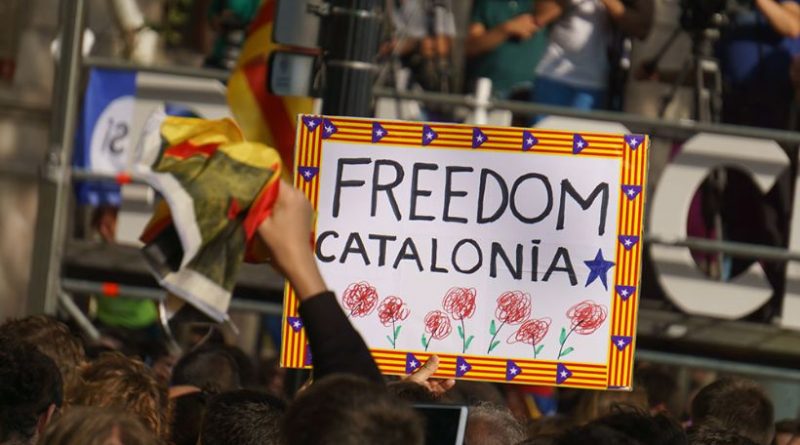Catalonian Protesters Marking One Year after the Referendum
By Madison Feser
Staff Writer
Fireworks, smoke bombs, crowds chanting “1 October, no forgetting, no forgiving.” This is the scene in Barcelona’s streets on October 1, 2018, the one-year anniversary of the illegal Catalonian independence referendum. 180,000 pro-independence protestors gathered throughout Catalonia to commemorate the day that regional parliament speaker, Roger Torrent, says, “will be the seed” of the Catalonian republic.
While these protests remained mostly peaceful, clashes between police and demonstrators occurred when protestors jumped over barriers in front of parliament and, in Girona, when protesters stormed a government office building, reports The Guardian.
From Belgium, self-exiled former Catalan President, Carles Puigdemont, criticized the violent demonstrators in a tweet, saying, “If they’re wearing hoods, they aren’t 1 October people. If they use violence, they aren’t 1 October people. We [protested for independence] with our faces uncovered and in a peaceful way. That is how, a year ago, we overcame an authoritarian state.”
Last year, Catalan officials organized a referendum vote for independence, which according to Spain’s 1978 Constitution, was an illegal act of sedition, according to Aljazeera. Spanish police forces violently blocked voters from polling stations, Madrid imposed direct rule over the autonomous region and sacked the regional government.
Although direct rule was lifted after the December elections, managing to keep pro-independence parties in power, at least nine political and civil leaders from the old government remain imprisoned or exiled.
With new leadership in Catalonia and a more lenient socialist Spanish Prime Minister, Pedro Sanchez, the interactions between the pro-independence and pro-unity groups have improved. The Guardian reports that Sanchez has been promising to increase autonomous self-government of Catalonia.
However, Catalonian leaders are reluctant to engage in any talks with Madrid until their former leaders are released from prison. Every week as a sign of solidarity, hundreds of supporters gather outside Lledoners men’s prison, where seven of the nine leaders are held, waving Catalan independence flags.
Despite what seems to be growing support for independence, Catalonia is split nearly evenly between those in favor and those against independence.
Internal divides among the separatists also threaten to destabilize the movement; some leaders encourage protests and other acts of disobedience, whereas some see a benefit in cooperating with Sanchez.
A year after the referendum that would become, according to Al Jazeera, Spain’s largest political crisis since its transition to democracy in 1975, some experts even argue that both sides are worse off.
“Politically we are much worse off than we were a year ago, no matter who you are supporting,” Sonía Andolz of Barcelona University told BBC. “If you are supporting independence you are worse off because a year ago you still had the dream that something would happen. If you are pro-unionist you thought this would be stopped and independence support would decrease, which has not happened.”

